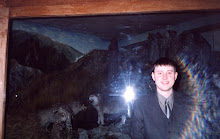четверг, 24 мая 2012 г.
Politic-economic systems
Politic-economic systems
According to Karl Marx and the way the modern politic-economic world shows itself to the impartial observer, there are different regimes based on the qualifying elements of the so-called historical periods of the Marxist-materialist philosophy. From first to the last: Primary Existence, Slave Ownership, Feudalism, Capitalism, Socialism and finally Communism (with the last, the State aggressive and coercive law should give way and place to moral regulations in the society). But, as we see from the analysis of the universal jurisprudence, the socialism is just a version of capitalism when the nationalization, confiscation and partial requisition takes place to establish the total State control and the further isolation from the last of the world is no more than just a protectionist measure for the own economy. Such a go of things is provided for by any capitalist legislation – USA, for example, may quite legally by its interior and international regulations, began a socialist country. However, such processes usually go by a arm-in-hands taking of State power by a certain party connected to the wider circles of national population. As for slavery, the civilized slavery of the Old Testament and, no doubt, the rest of the world in those times, would have been the envy for modern workers and employees taking into consideration the guarantees given. And, we see that in the sport world the trade of especially team sports athletes does not make them inferior in any way. And, such unofficial quite very civilized trade may be observed in other spheres of economics. Easily to be seen that people still live by clans and wider families as it was in the time of mammoths, depending on whether they need it openly on the conditions of their existence. Such things happen even in New York. The social strata still exist even taken into account the modern mobility of labor force and access to education: there are peasants, craftsmen, warriors, bureaucrats, trade’s men, clergymen, secret service men, official or unofficial noblemen, and rulers (not to forget about Mafia-men who are often the representatives of the other country unofficial special service or just unofficial servicemen of the intelligence office). Such professions are almost always inherited from parents in this way or other, only new development of economy may give vacancies in the more privileged strata, when the technical evolution provides for that. And, certain unofficial titles in the modern world which give privileges in trade and profession of a Statesman still exist, the same as official or unofficial ownership of the land with its inhabitants along with certain powers over them, such as judgment and giving consent for certain bargains. It’s official or unofficial competence. And, any ruler may be considered as a king. Even, in comparison to the Antic times. Then, not all rulers were dictators and not all slaves were quasi-prisoners sold to harsher kinds of slavery for crimes and often kings were displaced because of their mistakes and new kings elected. The inheritance of ruler jobs may be observed even in such countries as USA and Great Britain in the newest history. The influence of the Church remains to be huge, especially in such countries as Iran and Saudi Arabia. That is why the universal politic-economic system might be called Constitutional Monarchy… No doubt, that the same as Russia and its former republics, China, Eastern European Country, such Remnants of the former Socialist Camp as Cuba, Venezuela and Northern Korea will return to more “capitalist” way of making economy nationwide, when the protectionist measures for their own economics connected to the development of high level technologies will have their effect on the society. Now, when Iran turns into isolation also because of its aspiration to high technologies in nuclear and other sciences, it’s especially necessary not to consider Iran, Venezuela, Northern Korea and Cuba as political outcasts. We should understand why and what for these countries are not afraid to establish “Iron Curtains”. It’s to protect the national economies from the foreign capital and political influence to develop high technologies (Iran and Northern Korea), or just to protect the national economy from usurpation of the interior natural resources by the foreign capital supported by the political and military forces of the nearby giants such as USA, or else to protect the society from the criminality when a small island country might have become a platform for recreation on the part of a nearby superpower, which all would have been connected to lower morals, massive prostitution, drug dealing and casino business, here we see the policy of Cuba.
Подписаться на:
Комментарии к сообщению (Atom)

Комментариев нет:
Отправить комментарий